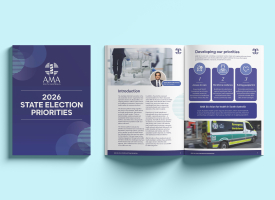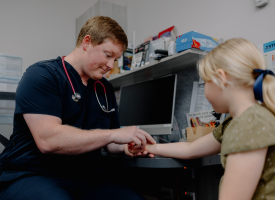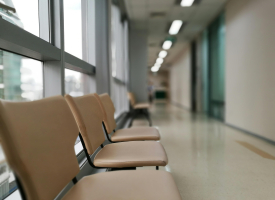e-DiT Chair’s message – March 2023
It’s been a busy start to 2023, both at the AMA and in my clinical role.

As many of you would be able to relate, I have started a new job and moved to a new hospital where I have never worked before and am still settling in. Although this new role has come with the challenges of gaining an understanding of the logistics and quirks of the hospital, trying to remember lots of new names and faces and figuring out different consultant preferences, I have been lucky that my new workplace has been welcoming and supportive and seems to have a good culture. Unfortunately, the same can’t be said for many medical workplaces around the country.
The annual Medical Training Survey results were released in February and the data paints a stark picture about the culture of medicine.
Thirty percent of respondents had personally experienced bullying, harassment or discrimination. The source of this behaviour was most commonly a senior medical colleague from the respondent’s team or department, and where this was the case, they were the respondent’s supervisor in 41% of cases. 70% of respondents who experienced unacceptable behaviours didn’t report it. This was mainly because they were concerned about career repercussions (55%) or felt that nothing would be done about it (51%). Pretty dire.
We know that this is a problem, so what is being done about it? The fact that we know poor workplace culture puts patients at risk, and 20% of DiTs are considering a career outside of medicine, has got the attention of the media, governments and the Medical Board of Australia.
The Department of Health has provided funding for a project to improve the culture of medicine and AMACDT has had input regarding what this project should look like. A national working group has also been established to aid in putting the Every Doctor, Every Setting Framework in to practice with the AMA, AMACDT and AMSA being represented in this working group. The upcoming Medical Board of Australia Conference is also themed around the culture of medicine, and I will be speaking at the event.
AMACDT has been calling for legislative change to ensure that hospital boards are responsible for the psychosocial safety of their staff. We have now seen Queensland follow South Australia’s lead by bringing in this legislation. This is a welcome change as it is my belief that to change culture, we need to change systems. AMACDT has been strongly advocating for the inclusion of workplace psychosocial safety in the National Safety and Quality Health Service Standards and we will continue to push for this through all avenues.
There is more to a positive workplace culture than not being bullied. DiTs should be able to have medical careers that are rewarding and allow them to contribute whilst also living a full life. In 2023 AMACDT is focused on improving flexibility in work and training. Our first Trainee Forum for the year was themed around flexibility in training and was an opportunity to discuss which Colleges are making positive changes, such as RACP, and which Colleges are lacking when it comes to flexible training. At our last AMACDT meeting we passed a position statement on flexibility in training that will be endorsed by the AMA Federal Council.
Flexibility isn’t just about those who want to work part time, it’s also about doctors with disabilities and different needs being supported to progress through training and in workplaces so that they can have fulfilling careers and contribute what they have to offer. This work lines with the AMA’s Equity, Inclusion and Diversity Committee who are focusing on supporting doctors with disabilities this year. Every doctor deserves a safe working environment that actively supports both doctor and consumer wellbeing. There is a lot of work to be done and I’m looking forward to working with our partners to create culture of medicine that is safe, supportive, and inclusive.
To cap off this busy start of 2023, it was fantastic to host AMACDT’s virtual roundtable on supporting doctors in training choose a career in general practice last week. This roundtable brought together experts, policymakers, academics, doctors and GPs in training and was focused on solutions-oriented discussions. A big thank you to our panellists and attendees who provided wealth of knowledge and plenty of food for thought. AMACDT will be incorporating these discussions into our advocacy for improving general practice in Australia.
Hannah



